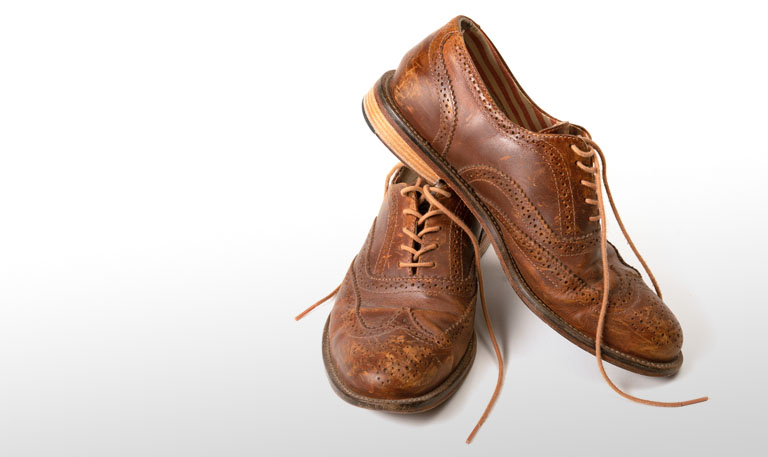What friends said when I was young, they say now: “He is always walking.”
I see life as a journey by foot through time.
Is there such a thing as a “pilgrim gene?” Travel writer and novelist Bruce Chatwin wrote of the “sacramental” aspect of walking. These days, a lot gets written about its therapeutic value for seniors like myself.
I have never given much thought to the practical benefits of my obsession. The post-war Bronx, New York, where I grew up, was haunted by a hushed word: Holocaust. No Jewish home was without it, without the distancing silence it opened up between parents and children, the loneliness contained in the unexplained.
I walked to get away from it, to map with my feet something that was my own, unshadowed: the soft spring light on gray buildings, the delicious silence of snow, the daggered wind. I bravely absorbed the wind. The wind absorbed me. Every gust I felt in my travels seemed a continuation of those first gusts in the Bronx.
Walking was the incubator of imagination. I’d find myself with Huck Finn, on his raft, navigating the Mississippi. Walking, you might say, on water. Passing the Chinese takeout as we oared deeper into the great river.
I was 80 when COVID hit. An inauspicious time to be an incorrigible walker. New York residents bandied back and forth a brand-new word—lockdown. Everyone was urged to remain housebound. Virtually all work places, including public libraries, and my Poets House, were shut down.
Immobility was more fearful to me than possible death. Immobility was death. Every morning I took my backpack and went out in search of a writing refuge. I’d pass block after block of empty streets and shops. The feeling of having wound up on an abandoned Hollywood movie set: New York at the end-of-days.
My shadow was the only shadow I encountered. If I cried out, no one would hear me.
After much searching, I found what I was looking for: a bench along one of the promontories of the Hudson River. I still go there to write. The joggers have returned. The yellow kayaks are back in the water. The past is back as though it had never been away.
I still remember stopping cold in the middle of a line. I’d be sitting in the sun, in the cool breeze of the river, hand poised dynamically in midair, and be jolted by the sudden awareness that all over the city old people like myself were lying stiff on gurneys.
Why them and not me? Who does the cosmic math that decides such things? Who turns the sun toward my face and away from theirs?
I’d walk back home slowly, my shame leaning heavily against my feet. Survivor shame. The shame my family felt towards relatives who disappeared into ditches in Poland. Gone one day as if they’d never been.
When the war ended, there was an outbreak of desperate walking throughout Europe.
People looking for their past, for people who were part of their past, for homes and neighborhoods and hopes that needed to be reclaimed, or finally put to rest.
Sometimes, walking in my old neighborhood, walking is the only familiar thing I find. New layers of ethnic skin have grown over the old. New histories have replaced the old. After a while, even the soft edges of one’s nostalgia are blunted. You can’t outwalk loss. Losing, as the poet Elizabeth Bishop wrote, is an art. One that isn’t hard to master. It takes practice, she said. Aging gives us many opportunities for mastery.
I have lived for the past half century on Manhattan’s Lower East Side. Since COVID, one sees fewer old people in the streets. There is an emptiness beneath the sheltering trees of the Village View housing complex where many seniors live. The habit of indoor living is like any other habit. It revolves around itself. It atrophies itself from what is not itself. It sees the outside world from within, and pronounces it dangerous.
At Village View there lives a woman, who like myself, turned 85 last year. She leaves her house only to shop, to go to the doctor. When we were young, we were lovers and great friends, and the cafes and movie theaters we walked to were the extensions of our love.
Visiting her, I connect with the strange intimacy of walking. We didn’t walk as far as we thought we would. In my dreams, I walk without stopping. I am always walking.
Robert Hirschfield is a New York-based writer and poet. He has spent much of the last five years writing and assembling poems about his mother’s Alzheimer’s. In 2019, Presa Press published a volume of his poems titled, The Road to Canaan. His work has appeared in Parabola, Tricycle, Spirituality & Health, Sojourners, The Moth (Ireland), Tears in The Fence (UK) and other publications.
A New Friend for The Long Journey — 3rd Act Magazine
Diana Nyad and Bonnie Stoll Want to Take You for a Walk — 3rd Act Magazine
Richard Lewis: Drawing Water from The Children’s Well — 3rd Act Magazine


